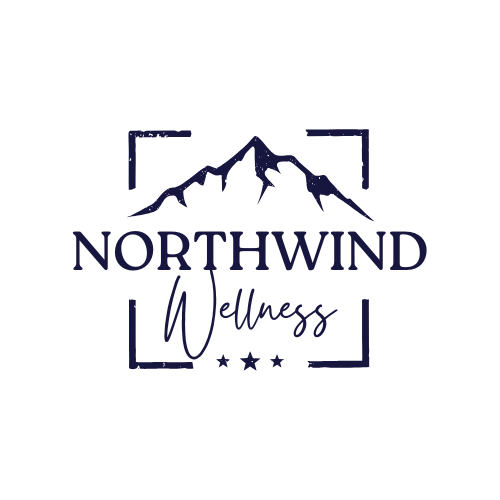Partial Hospitalization Program
Partial hospitalization is a confusing program, as people usually find it hard to differentiate between partial and residential programs. Some people take it much lighter by just looking at the word “partial” in the name. However, this is a false belief, as the partial hospitalization program suggests a lot for those who suffer from substance abuse. To get as much as possible, folks can learn more about cures from substance abuse treatment centers.
A partial hospitalization program is a treatment plan provided to those suffering from substance abuse and requires a more significant amount of care than a standard outpatient treatment program or an intensive outpatient program can provide. People do not need to stay for the night. They are provided with the medication and counseling sessions during some hours of the day.

How is this different from a residential program?
For the first time, when people realize the incomplete hospitalization program and its full-time care, they often wonder how this program differs from the residential program. The partial hospitalization program and the residential program are very much different from each other.
In the housing treatment plan, everything happens at the facility of rehab. Even if people leave the facility, that will be part of the rehab plan. It may be some outing, an outing being planned by those in the rehab with the recovery community. As a result, the rehab center acts as a home in Montana for a lengthy period.
The preliminary hospitalization plan works entirely differently. People need not live on campus, which means they don’t take the campus as a residence. Instead, they accept their psychotherapy and treatment terms in the recovery center for some hours during the day and return to their home when they complete their sessions.
Welfares of a Fractional Hospitalization Treatment Plan Center
There are many advantages to a partial hospitalization treatment plan as one gets the right treatment with no harmful impact on daily routines. Sometimes, going to school or work is also allowed. The benefits:
- The individual is in regular interactions with medical, psychological, behavioral, and emotional health professionals.
- They are provided with personalized/customized behavioral health care.
- They pass through both individual therapy and collection therapy.
- They enjoy an excellent cure with no costly instant hospital stays.
- They found it easier to change back into everyday life and freedom.
 UNDERSTANDING THE DIFFERENT LEVELS OF CARE:
UNDERSTANDING THE DIFFERENT LEVELS OF CARE:
The levels of care are different; the difference may be demographics and gender, to be more specific. The stories of maintenance are other for men’s rehab programs or women’s rehab programs. When people do not perceive these different levels, they feel hopeless, deserted, and chaotic. But the good news is that as their understanding of the rehab is developed, the fear, hopelessness, and helplessness are being overcome by hope and positivity.
One is an outpatient rehab program, in which people have to visit the rehab for just a few hours a week for the scheduled sessions. We have a second program, the intensive outpatient rehab program. Clients have to visit the rehab center for 10 to 15 hours a week to be dealt with more intensively.
While in a partial hospitalization treatment program, the client must be at the recovery center for the entire day and come back home at night. One common thing among all these is that of spending holidays and nights at one’s residence.
PARTIAL HOSPITALIZATION SERVICES:
Before beginning the treatment service, our staff conducts an intake evaluation, enabling us to design an individualized, highly personalized, customized plan based on the person’s mental health conditions. Some specific treatment services provided in partial hospitalization treatment programs are:
Detox
Detox is standard in almost every facility, but the bonus point we have here in Montana is Medically Supervised Detox. We have physicians available who provide people with meditations to avoid the psychological cravings for the substance and lead the client to a safer detox from drugs. Medication-assisted treatment programs in Montana are available through our treatment partners.
We offer detox treatment programs in Montana to those with mild-to-moderate withdrawal symptoms in a partial hospitalization program. Those with severe and life-threatening withdrawal symptoms can’t be dealt with in a partial hospitalization program. They require intensive care, supervision, and pharmaceutical support to get rid of the withdrawal symptoms.
Medical Services
To treat the physical complications from substance abuse and provide medication, we have nurses and medical doctors on our staff. The drug we provide doesn’t lead to further dependency and only reduces the withdrawal symptoms severity. The common belief among the masses that stuffing one’s head with medication is like getting into another addiction is false. The sole purpose of drugs is to deal with the withdrawal symptoms and stop the specific illegal substance cravings.
Management of Medication
We use behavioral therapies and psychotherapies to promote abstinence behaviors by blocking the drugs’ rewarding effect, lessening the craving, and managing protracted withdrawal symptoms such as anxiety and insomnia. The therapeutic sessions are for the psychological well-being, keeping the person motivated, and raising his morale to fight the addiction. The medication deals with the biological aspect of the entire story.
Individual Therapy
People are provided with one-on-one meetings with a therapist or addiction counselor to work on unhealthy behaviors and stay healthy during the abstaining process. The primary purpose of this is to make the client realize his importance, his worth and raise his self-esteem. It’s like helping him find himself.
Group Counseling
Our mental health treatment professionals focus on a single topic or skill in our group counseling sessions at Montana. The issues and tasks may be education group tasks, stress management, relapse prevention, life and coping skills, and recreational activities. In group tasks and learning, some good things are the sense of harmony and oneness, the realization that one isn’t alone to treat addiction, and communication with the guys who are on the way to a sober life. This makes the individual feel a bit more accepted by society.
AFTERCARE PLANNING:
Before preparing the client for discharge, we design an aftercare plan for him, consisting of tactics to avoid relapse, such as support groups, sober living homes, or group and individual counseling afterward. The individual passes through a real hard time when his partial hospitalization program meets an end. He again becomes prone to the many triggers for the addictive substance in his environment. If we just let him discharge without teaching him any proper skills, he may soon fall prey to addiction again.
Holistic Treatments
We offer holistic treatment options such as Yoga, Meditation, equine therapy, nutrition, art and music therapy, and fitness classes.
Along with all this, we treat those with a dual diagnosis, persons diagnosed with a psychiatric disorder with addiction, in our daily treatment programs here in Montana.
How Long Does This Treatment Take and What Does It Cost?
Just throwing a guess won’t work, and individuals vary in the addiction they have. The length of partial hospitalization varies according to the needs of the individual. Being enrolled in our PHP, an individual must attend the rehab for 4 to 5 days a week, for about 6 to 7 hours a day, and return to his residence in the evening. After completing a partial hospitalization program, we direct the clients towards standard outpatient programs.
Typically, a partial hospitalization program in Austin costs much less than residential or inpatient rehab programs since the individuals are not provided with a room to stay in. The cost depends upon the treatment program’s length. The length of the program costly would the treatment be. This depends on the insurance policy, as addiction treatment is considered an essential health benefit. This means that insurance companies must cover the addiction treatment programs in the same way they cover other medical problems.
Addiction Rehab Programs
A partial hospitalization cure program at our Austin facility includes 24 hours of care to certify that the client is comfortable with the detox process. When the partial hospitalization program successfully treats the individual, the next step is to go for the Residential Treatment Program’s long-term recovery process. For lasting recovery, Addiction treatment programs and addiction therapy services offer a comprehensive dual diagnosis cure, which includes:

